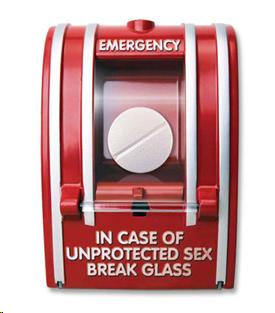
Emergency Contraception
22

Emergency contraception, also known as the "morning-after pill" or Plan B One-Step, is a safe and effective way to prevent pregnancy following unprotected intercourse. To be effective, it must be taken within 3 days after unprotected sexual intercourse.
Emergency contraception is not the "abortion pill" (RU-486) and will not terminate an established pregnancy, in which the fertilized egg has already attached itself to the wall of the uterus, nor will it cause any harm to the developing fetus. Rather, emergency contraception inhibits ovulation and thickens cervical mucus, which prevents the sperm from joining the egg.
Emergency contraception should not be used as a form of ongoing birth control. Nausea and vomiting are among the most common side effects. Other side effects may include breast tenderness, irregular bleeding, dizziness, and headaches.
Image: http://nydoctorsurgentcare.blogspot.com/2013/02/emergency-contraception-what-is-it.html